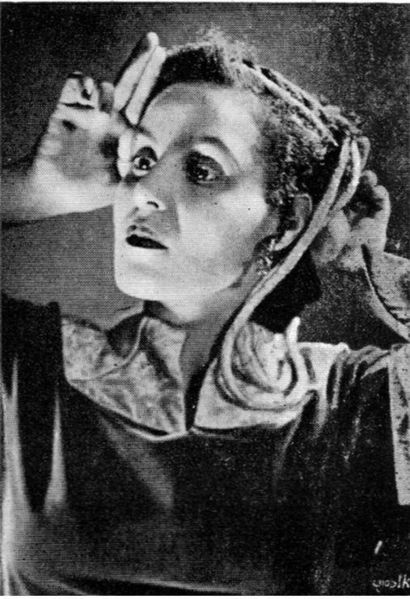Ariel Zilber on:
[Wikipedia]
[Google]
[Amazon]
Ariel Zilber ( he, אריאל זילבר; born September 23, 1943) is an Israeli singer-songwriter and composer.
 Later in life, Zilber became a religious Jew and a follower of the Lubavitcher rebbe. He was a resident of Alei Sinai, but now lives with his wife on
Later in life, Zilber became a religious Jew and a follower of the Lubavitcher rebbe. He was a resident of Alei Sinai, but now lives with his wife on
Official site
{{DEFAULTSORT:Zilber, Ariel 1943 births Living people Baalei teshuva 20th-century Israeli male singers Israeli Orthodox Jews Jewish Israeli musicians Israeli male singer-songwriters 21st-century Israeli male singers Israeli people of Latvian-Jewish descent Israeli people of Russian-Jewish descent Israeli people of Yemeni-Jewish descent Israeli settlers Musicians from Tel Aviv
Biography
Ariel Zilber was born in Tel Aviv. His mother,Bracha Zefira
Bracha Zefira ( he, ברכה צפירה, also spelled Braha Tzfira; 15 April 1910 – 1 April 1990) was a pioneering Israeli folk singer, songwriter, musicologist, and actress of Yemenite Jewish origin. She is credited with bringing Yemenite and ...
, was a popular singer of Yemenite Jewish origin and his father, Ben Ami Zilber, played the violin in the Israeli Philharmonic Orchestra
The Israel Philharmonic Orchestra (abbreviation IPO; Hebrew: התזמורת הפילהרמונית הישראלית, ''ha-Tizmoret ha-Filharmonit ha-Yisra'elit'') is an Israeli symphony orchestra based in Tel Aviv. Its principal concert venue ...
. As both were busy with their international careers, they placed their son in a boarding school on kibbutz
A kibbutz ( he, קִבּוּץ / , lit. "gathering, clustering"; plural: kibbutzim / ) is an intentional community in Israel that was traditionally based on agriculture. The first kibbutz, established in 1909, was Degania. Today, farming h ...
Gan Shmuel, where he lived from age four to fifteen. After losing part of a foot while playing with explosives in his room, he was expelled from the school and returned to his parents in Tel Aviv, where he began studying the trumpet. He spent several years in England and France building up a career, but eventually returned to Tel Aviv.
 Later in life, Zilber became a religious Jew and a follower of the Lubavitcher rebbe. He was a resident of Alei Sinai, but now lives with his wife on
Later in life, Zilber became a religious Jew and a follower of the Lubavitcher rebbe. He was a resident of Alei Sinai, but now lives with his wife on moshav
A moshav ( he, מוֹשָׁב, plural ', lit. ''settlement, village'') is a type of Israeli town or settlement, in particular a type of cooperative agricultural community of individual farms pioneered by the Labour Zionists between 1904 an ...
Gitit Gitit may refer to:
* Gitit, Bik'at HaYarden, Israeli settlement on the West Bank
* Gittith
A gittith ( he, גתית) is a musical term of uncertain meaning found in the Bible, most likely referring to a type of musical instrument.
Mention in the ...
. In 2007, he participed in a campaign for the release of Yigal Amir, who assassinated Prime Minister of Israel Yitzhak Rabin.
Music career
In the 1970s, he established the innovative rock band Tamuz, withShalom Hanoch
Shalom Hanoch ( he, שלום חנוך) (born September 1, 1946) is an Israeli rock singer, lyricist and composer.
He is considered to be the father of Israeli rock and modern Israeli music in general, both of which have been profoundly influe ...
, and later headed the group Brosh. His songs "Rutzi, Shmulik Koreh Lach" ("Run, Shmulik Is Calling You"), "Ani Shochev Li Al Hagav" ("Lying on My Back"), "Ten Li Koach" ("Give Me Strength"), "Milliard Sinim" ("A Billion Chinese") and others were known for their amusing, somewhat bizarre lyrics.
In the 1980s, he launched a solo career. His music spans various genres, from rock, pop, hip-hop and Arab music to Ethiopian-inspired music. His album "Ha'atalef Vehatarnigol" ("The Bat and the Rooster") included four Hasidic
Hasidism, sometimes spelled Chassidism, and also known as Hasidic Judaism (Ashkenazi Hebrew: חסידות ''Ḥăsīdus'', ; originally, "piety"), is a Jewish religious group that arose as a spiritual revival movement in the territory of contem ...
melodies composed by Rabbi
A rabbi () is a spiritual leader or religious teacher in Judaism. One becomes a rabbi by being ordained by another rabbi – known as '' semikha'' – following a course of study of Jewish history and texts such as the Talmud. The basic form o ...
Yitzhak Ginsburgh. According to Zilber, the title song is taken from a Talmudic analogy in which a rooster crows excitedly as a new day dawns while the bat lives in darkness.
Awards and recognition
In 2014, Zilber won an ACUM prize for his contribution to music. Initially, he was to be granted the lifetime achievement award, but due to his political views, the prize was downgraded to an award for his musical accomplishments. In 2016, Zilber was honored with the lifetime achievement award of the Israeli Union of Performing Artists.Discography
Albums
*Rutzi Shmulik, 1976 *Ariel Zilber and the Brosh Band, 1978 *Ariel Zilber, 1982 *Ariel Zilber, CD, 1983 *Ba Da Di Dia, 1988 *Two weeks in a foreign city, 1991 *Smoke Screen, 1999 *Anabel, 2005 *Politically Correct, 2008 *The Bat and the Rooster (Ha'atalef Vehatarnigol), 2013 *Someone (Mishehu), 2016See also
* Music of IsraelReferences
External links
Official site
{{DEFAULTSORT:Zilber, Ariel 1943 births Living people Baalei teshuva 20th-century Israeli male singers Israeli Orthodox Jews Jewish Israeli musicians Israeli male singer-songwriters 21st-century Israeli male singers Israeli people of Latvian-Jewish descent Israeli people of Russian-Jewish descent Israeli people of Yemeni-Jewish descent Israeli settlers Musicians from Tel Aviv